May 18, 2025 | 20:45 GMT +7
May 18, 2025 | 20:45 GMT +7
Hotline: 0913.378.918
May 18, 2025 | 20:45 GMT +7
Hotline: 0913.378.918
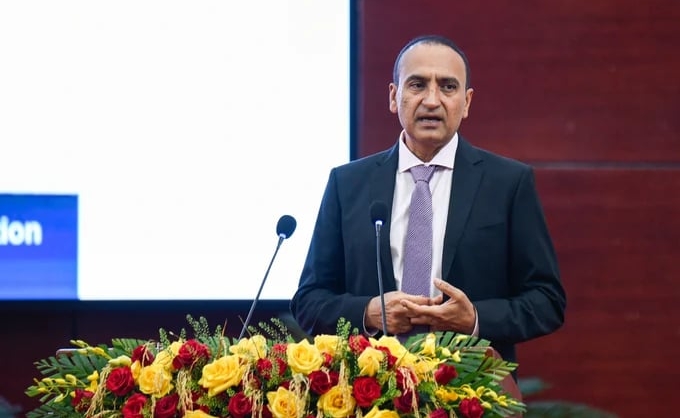
Aziz Arya, the Expert in South-South and Triangular Cooperation, FAO Regional Office for Asia and the Pacific.
South-South Cooperation (SSC) is essential in promoting sustainable development in Asia. This is the foundation for open exchange, expanding development solutions, knowledge, experience, policies, technology, and know-how between countries and organizations in the Global South. For the Food and Agriculture Organization of the United Nations, SSC is a complement to the North-South cooperation mechanism (between developed and developing countries).
To implement SSC, it is necessary to build flexible, professional institutions that are adjusted to suit countries' priorities. Technical synchronization guidance from central to local levels is important for successful cooperation. The FAO expert believe that when they come to work and demonstrate technology directly, agricultural extension officers will help farmer households better understand the types of machinery. This helps close the gap in technological skills, helps farmers reduce confusion, and ensures innovative ideas are applied in the field.
Aziz Arya, the Expert in South-South and Triangular Cooperation, FAO Regional Office for Asia and the Pacific, said: "Building capacity and institutions is the key for countries to cooperate effectively. We strive to organize learning, exchange, and training trips in the locality where the project is implemented. Only when going to the field can we adjust, replicate, and systematize models based on inter-regional cooperation."
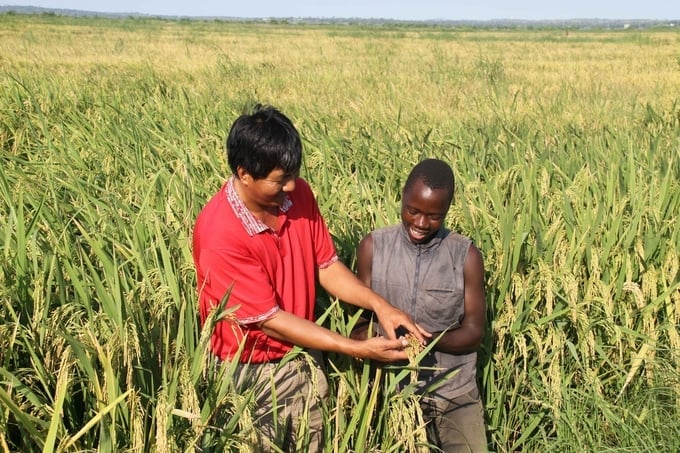
Agricultural extension officers help farmer households help them better understand different types of machinery.
Not only supporting local agricultural development, South-South Cooperation also addresses plant diseases, cross-border animal diseases, food safety, trade and research issues.
For the training of agricultural, human resources, exchanges within the network of institutes and schools will spread general knowledge and introduce new scientific topics.
FAO has considerable experience in implementing SSC. For more than 20 years, FAO has coordinated with more than 20 countries, sending 3,000 experts to more than 60 countries for technical exchanges. More than half of those experts come from China. Researchers have introduced hundreds of new crop varieties and demonstrated hundreds of new technologies, making an essential contribution to sustainable development in Asia.
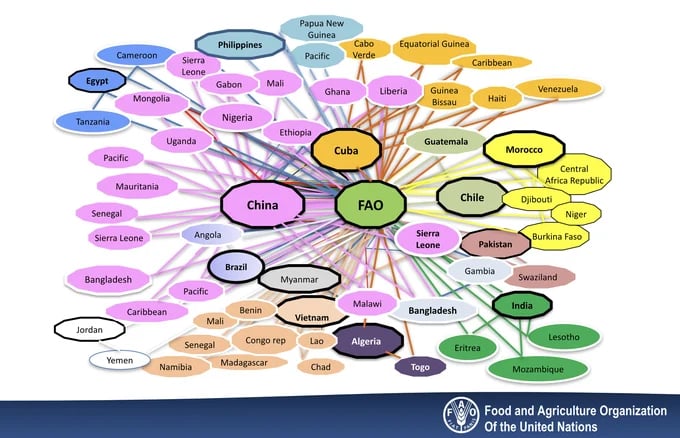
For more than 20 years, FAO has coordinated with more than 20 countries, sending 3,000 experts to more than 60 countries for technical exchanges.
Cooperation between Nigeria and China under the FAO SSC model focuses on rice-fish farming to improve income for small households. In recent years, SSC in Nigeria has deployed 35 rice-fish demonstration models in 8 provinces, expanded rice-fish production over 10,000 hectares, and nearly doubled rice and tilapia production in some localities.
Also, in Asia, cooperation between Japan and FAO within the SSC framework has strengthened rural capacity through 15 training courses, with the participation of 52 experts from 7 ASEAN countries (Cambodia, Indonesia, Laos, Malaysia), Philippines, Thailand, and Vietnam).
In addition, the institutionalization of agricultural education experience has been successfully implemented in 13 Latin American countries and 5 African countries. This model has brought about practical Tripartite cooperation, improved food security and nutrition, created household market access, and created learning opportunities.
In South America, the partnership model between FAO and Brazil focuses on providing development solutions in agricultural education to help transform food systems. Models of training chefs, collaborating with family farms to provide safe food to schools, and agricultural education in school gardens... not only help smallholder farmers increase production but also create a sustainable environment for young people to access agriculture.
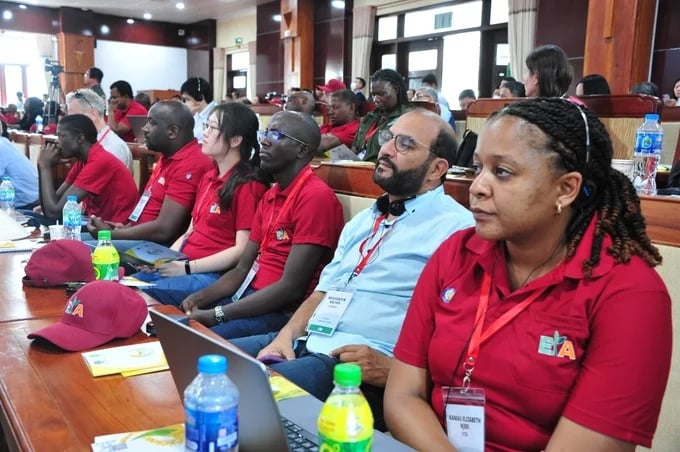
International experts attended the Vietnam-Africa Policy Dialogue Workshop.
FAO experts also emphasized Vietnam's responsibility. Vietnam has shared experience and provided technical support through experts and long-term technicians to 12 African countries. Many successful examples have been recorded in Senegal, Chad, and Namibia. The results are clear as rice production in Senegal has increased to 10 tons/hectare, an important achievement driven by the South-South cooperation model.
Mr. Aziz Arya called on international representatives at the Vietnam - Africa Policy Dialogue Workshop to continue cooperating with FAO. With more than 70 years of experience in international cooperation, FAO ensures technical supervision so that the countryside meets international standards. Prestige with multilateral development banks and a global network of scientific research partners help FAO identify necessary resources for developing countries.
"FAO acts as an honest partner and intermediary, ensuring all parties comply with agreed roles and responsibilities. We bring international experience, historical stories, and long-term development traditions to all over the world," the FAO expert emphasized.
Translated by Tuan Huy

(VAN) Deputy Minister Nguyen Quoc Tri also expressed his hope that Cuba will soon overcome its current challenges, attain food security, and further expand cooperation with Vietnam.

(VAN) The project contributes to enhancing the resilience of communities vulnerable to the impacts of climate change, with a primary focus on local women.
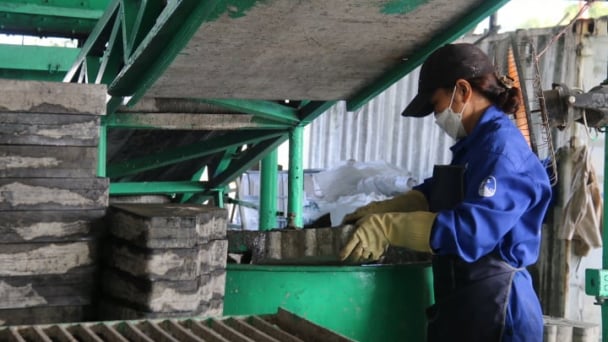
(VAN) Green materials help save energy and resources. However, after more than 10 years, Vietnam has only developed over 200 green buildings with more than 6 million square meters of floor space.
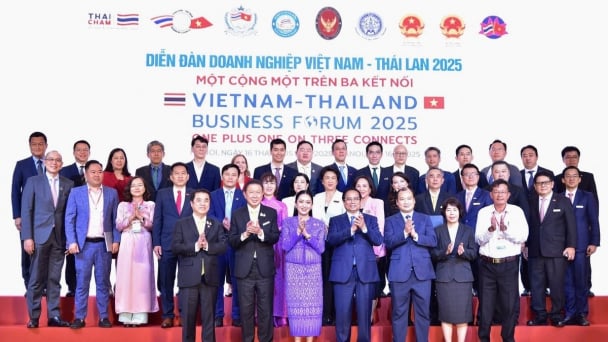
(VAN) Vietnam - Thailand Business Forum 2025: One plus one on three connects, marking a milestone in the comprehensive strategic partnership between the two nations.
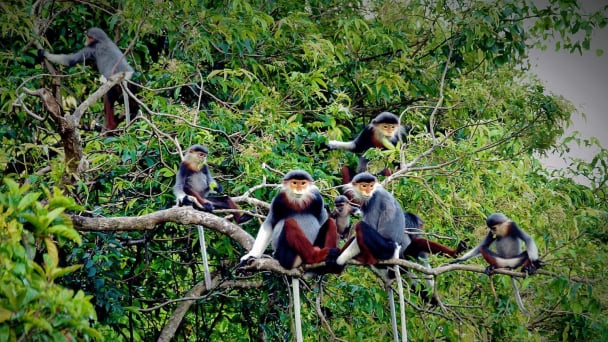
(VAN) The United Nations designated 22 May as the International Day for Biodiversity 2025 with the theme 'Harmony with nature and sustainable development.'
![Multi-channel, multi-directional Vietnamese agricultural markets: [8] A national strategy is needed](https://t.ex-cdn.com/nongnghiepmoitruong.vn/608w/files/phucpm/2025/05/15/1435-thi-truong-nong-san-viet-da-kenh-da-huongbai-8-can-mot-chien-luoc-quoc-gia-084750_728.jpg)
(VAN) The Chairman of Hung Nhon Group shared: ‘Opening up and tapping into new markets is the right and strategic direction for Vietnam's agricultural sector.’
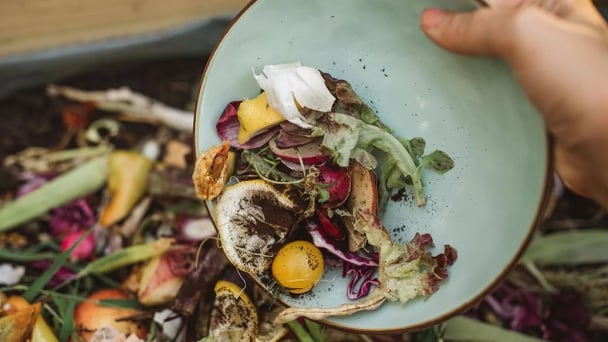
(VAN) Food waste has become a serious issue in modern society, especially in rapidly urbanizing and developing cities like Hanoi.